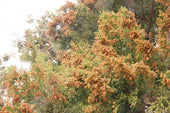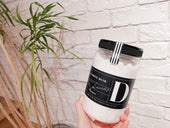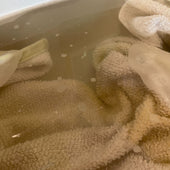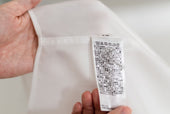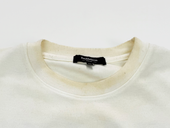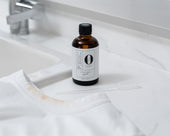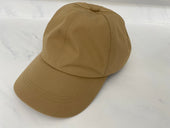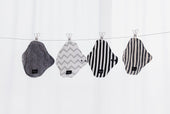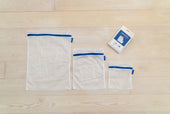I don't think many people check the material of their clothes when washing their clothes. However, depending on the material, regular washing may damage the clothing .
This time, we will introduce the types of fibers and the washing methods suitable for them .
Different washing methods and detergent usage depending on fiber properties

Fibers are broadly divided into ``natural fibers'' and ``synthetic fibers,'' which are further subdivided.
Water properties differ depending on the type of fiber.
For example, knits made from wool tend to shrink when soaked in water.
You also need to be careful about detergent.
Animal fibers such as cashmere and silk are sensitive to alkalinity, so a neutral detergent is recommended.
As you can see, there are various weaknesses depending on the fiber , so it is very important to check the fiber material.
To prevent problems such as shrinkage, wrinkles, easy to lose shape, and loss of luster when exposed to water or hot water, Be sure to check the material before washing to maintain the texture of your clothes.
Check the characteristics of fibers commonly used in clothing
In addition to the familiar fibers such as cotton and polyester, a wide variety of other fibers are used in clothing.Next, let's take a look at the types of fibers commonly used in clothing, both natural and synthetic.
Natural fibers | Plant fibers, animal fibers, mineral fibers
cotton
Cotton is a vegetable fiber that is soft to the touch and easily absorbs sweat, so it is often used for underwear, towels, T-shirts, etc.The material is easy to care for.
【merit】
Excellent moisture absorption, water absorption, breathability, heat retention, durability, and resistance to washing [Disadvantages]
Easy to wrinkle and shrink.
It gets harder and harder after washing
[Washing points]
Use a neutral detergent such as fashion laundry detergent and wash in lukewarm water at around 30℃.
Denim and other items tend to discolor easily, so wash them separately. When washing for the first time, they tend to shrink more easily, as they have the strongest ability to absorb moisture.
We recommend that you run the garment through water once before washing.
Hemp (linen)
Hemp is the perfect material for the hot and humid summer months, and is often used in spring and summer clothing.【merit】
Excellent breathability, moisture absorption and wicking, durable and long-lasting
【Demerit】
Easy to fuzz and wrinkle due to friction, easy to transfer color, easy to shrink
[Washing points]
Wash in lukewarm water below 30°C using a neutral detergent such as fashion laundry detergent.
Please note that washing at temperatures above 30℃ will cause it to shrink more easily.
To prevent wrinkles, put it in a laundry net and dry it for a short time. Please wash separately from other items as the color transfers easily.
Wool (wool, cashmere, alpaca...)
It has excellent heat retention and is often used in fall and winter clothing, such as knits and sweaters.【merit】
Excellent heat retention and moisturizing properties, wrinkle resistant [Disadvantages]
Easy to shrink with water and easy to attract insects [Washing tips]
First, check the washing label.
Make sure it is washable, and if possible, whether it is machine washable or hand washable.
For items that cannot be washed with water, take them to a dry cleaners.
For items that can be washed at home, use a neutral detergent such as fashion laundry detergent and wash in room temperature water of 20 to 30 degrees Celsius.
Whether washing in the washing machine or by hand, you can minimize damage to the fabric by folding it inside out and placing it in the laundry net.
When washing in a washing machine, use a delicate laundry cycle such as ``Home Cleaning,'' and select a gentle spin cycle for less than 1 minute.
silk
Silk is used for Japanese clothing such as kimonos, ties, and blouses.【merit】
Elegant and shiny, soft to the touch [Disadvantages]
Easily fades and yellows due to UV rays, and easily leaves discoloration and stains.
[Washing points]
Most silks cannot be washed at home.
Be sure to check the washing label.
For washable silk, hand wash in water below 30℃ using a neutral detergent.
Wringing, twisting, and rubbing are strictly prohibited.
Chemical fibers | Regenerated fibers, semi-synthetic fibers, synthetic fibers, metal fibers
Regenerated fibers (rayon, cupro, lyocell, etc.)
It is artificially extracted cellulose from plants and regenerated into fiber.It is often used in elegant clothing such as dresses, blouses, and skirts.
【merit】
Shiny, soft to the touch, and has excellent moisture absorption [Disadvantages]
When it contains moisture, it tends to shrink and wrinkle easily [Washing tips]
Dry cleaning is recommended as it is sensitive to water.
If the item is washable, use a neutral detergent such as fashion detergent and wash by hand in lukewarm water below 30℃.
Semi-synthetic fibers (triacetate, acetate, etc.)
Semi-synthetic fibers are made by combining raw materials extracted from plants and animals with synthetic chemicals.It is used as a lining for jackets and as a substitute for silk.
【merit】
It has elasticity, moisture absorption, shape memory, and can be pleated etc. [Disadvantages]
It has low strength, wrinkles and loses its shape when wet, and discolors due to car exhaust gas etc. [Washing tips]
Dissolve your clothes in lukewarm water (about 30 degrees Celsius) with a neutral detergent such as fashion detergent and wash by hand.
Avoid rubbing or pinch washing.
Synthetic fibers (polyester, nylon, acrylic, polyurethane)
Synthetic fibers made from petroleum are widely used in sports clothing, shirts, knitwear, and accessories.【merit】
High strength, strong and durable, wrinkle resistant [Disadvantages]
Easy to get dark spots and static electricity [Washing tips]
Machine washable using mild alkaline detergent.
In rare cases, hand washing is recommended, so be sure to check the care label before washing.
We recommend hand-washing decorative items and items that fade easily by placing them in a laundry bag.
Fiber points to keep in mind when washing
Avoid direct sunlight on silk and nylon.
Exposure to direct sunlight has a positive effect on laundry, such as sterilization and quick-drying properties, but depending on the type of fiber, it can damage the fabric or cause it to fade.Natural fibers such as cotton and silk and nylon are damaged by UV rays. It has the characteristic of being susceptible to damage and discoloration and damage, so it is best to dry it in a well-ventilated place in the shade.
Also, dyed cotton products tend to fade easily, so please dry them inside out .
Polyurethane deteriorates if detergent ingredients remain!
Polyurethane, which is stretchable and stronger than rubber, is used in underwear, socks, stretch pants, etc.Polyurethane may lose its elasticity or become crumbly due to detergent residue. Please be sure to rinse thoroughly after washing.
Deterioration also progresses when exposed to chlorine, ultraviolet light, and water.
Don't leave it soaked, but let it dry in a shaded area with good ventilation.
Items that can be washed with water but cannot be tumble dried

Many natural fibers, such as silk and wool, can shrink or lose their shape when placed in the dryer.
In addition, nylon and polyurethane are also sensitive to heat, so be careful.
Embroidered items, lace, and items with large stitches may also shrink.
It is best not to use the dryer with glued clothes, as this can clog the dryer's internal dirt and filters, causing the dryer to malfunction.
Change the temperature of the washing water depending on the fiber
The higher the temperature of the washing water, the better the dirt will be removed, but silk and wool may shrink in hot water.Wash non-shrunk cotton and linen in lukewarm water below 30℃.
Even if your washing machine can wash in hot water, we recommend separating your clothes by material before washing.











